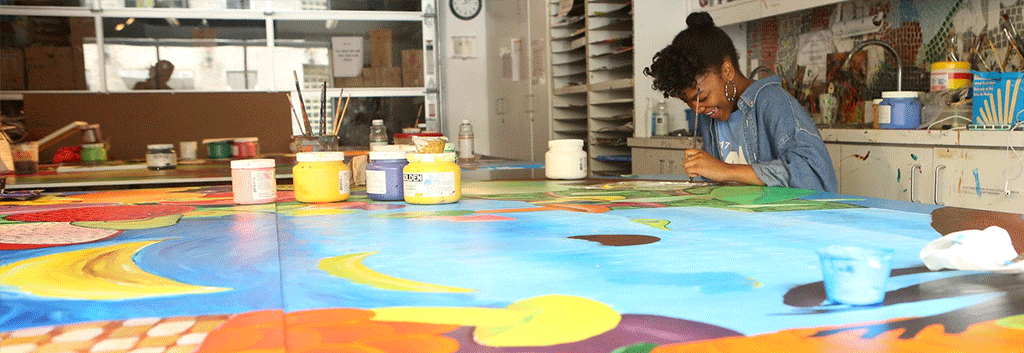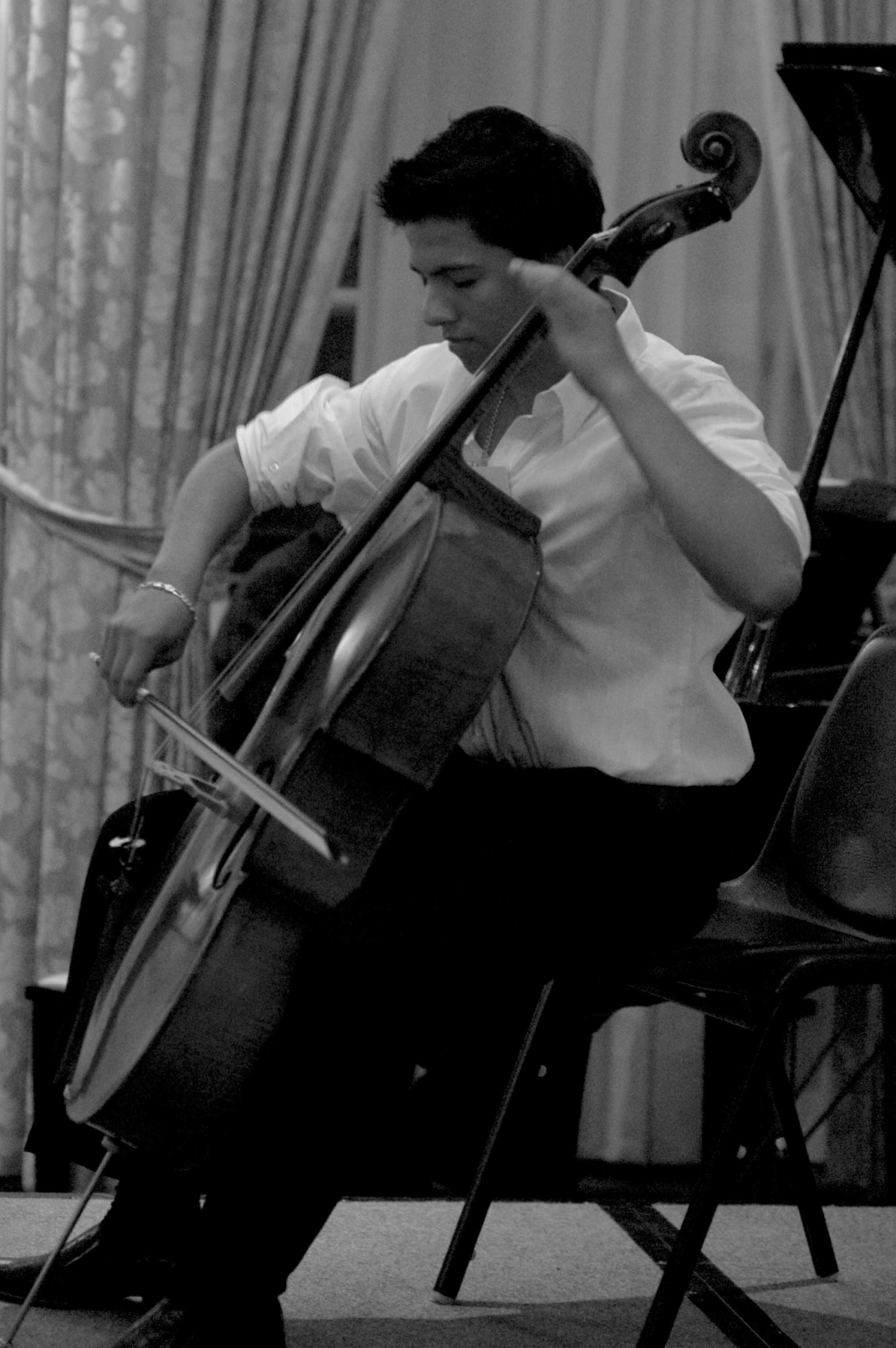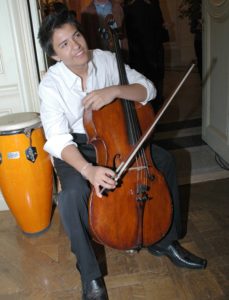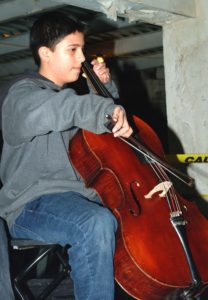
Blog
Alumni Spotlight: Benz Marston
For this Sitar Alumni Feature, we shine a light on Benz Marston, a professional cellist and teacher residing in Los Angeles, CA. As a teen, Benz was granted a scholarship to attend The Washington Conservatory of Music in our nation’s capital, and was a member of the National Symphony Orchestra fellowship program in DC. Benz works to advocate for diversity in symphony orchestras and bring the joy of classical music and cello to minority communities. In this interview, Benz reminds us of the power of support, belonging, and doing what makes you happy.

When and how were you involved at Sitar?
I was involved in Sitar from 2004-2010. I was a student there, cello focused, but at Sitar you can do everything. I was involved in theater, dance, painting, and writing.
Since leaving Sitar, what have you been up to?
I had a disconnect from the cello for 8 years. I left the cello when I was at George Mason University, my mom had passed away, and as an 18 year old, you don’t know how to react to things. You question yourself and there’s self doubt, so I quit the cello. I left what I loved the most. Then I got a job as a retail associate, I met my partner while in DC, and then moved to Los Angeles, CA. While in L.A., I decided to pursue music again, because that is what made me happy. I quit my job, and wanted to finish my degree and play the cello. As cliche as it sounds, “it’s never too late.”
When I went to Sitar, I could speak in Spanish, I was feeling that connection. I had friends there, and it was the energy I felt, like I had a place where I could be myself.
Benz Marston
And how has that been?
It’s been great! It was a little tough at first, building the technique, getting reacquainted with bow strokes and notes, but it’s like riding a bike, you never forget. I used to take out my cello and play a few notes here and there, but I decided if I want to do music, I need to devote my time to it. So I did, and it’s paid off so far. I think the best reward is being happy. And that’s the best thing about music, you self express, and you not only learn the beauty of the instrument, you get to evoke all these emotions through music, which is fascinating.

Do you have a moment at Sitar or a story that you really look back on fondly?
I think it was just the one place I could go after school and be surrounded by people that love doing arts and music. And I went to a predominantly white school, and maybe there were two Latinos and not many people of color, and I felt very alienated there. When I went to Sitar, I could speak in Spanish, I was feeling that connection. I had friends there, and it was the energy I felt, like I had a place where I could be myself. The kids there all loved music and they loved art, and that made it feel safe to be there. I would look forward to afterschool.
Funny story, I actually did not choose the cello. My aunt took me to Sitar, and this was when it was in the basement. And I wanted to take piano, but all the spots were taken. Then I thought about the violin, and all those spots were taken. They said, “how about the cello? It’s like a big violin”. And I said “okay, sure, I’ll do it. And ever since then, I’ve been like “wow, yeah, this instrument is for me”. It’s one of the stories where I didn’t choose the cello, the cello chose me.


Do you have anything to say about the power of community arts right now?
I think the most important issue to me in these current dark times during the pandemic is that we have so many social movements happening like Black Lives Matter, especially in L.A., you get to see all these protests happening and it’s a beautiful thing because you see people unite. And that’s what music is, when people unite, something great comes out of it. I think a lot of it, especially if we’re connecting it to music, representation is very important, specifically in the classical music field. I see my “competition”, or the people I’m competing against in auditions, and they’re maybe 98% white. I don’t get to see many Peruvian cellists, I don’t get to see Latinx cellists out there. That’s one of the things Sitar has to offer. It molds, creates, and inspires people like me. Representation will happen if they stay true to their art and their passion. It’s super important.
Benz, is there anything else you’d like to say?
I want to give thanks to Rhonda, Joe, and Maureen. When I look back, if I didn’t have their amazing support, I wouldn’t be where I am today. I wouldn’t have met the cello or pursued a music degree. It’s very easy to take for granted when you’re in the moment, but looking back, maybe I wouldn’t be playing the cello if I didn’t have these helping hands shaping me into the person I am today.

